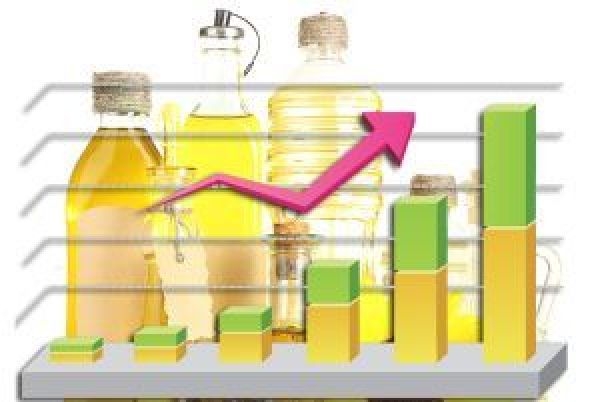Palm and soybean oil quotes for the week rose by 5-6% on the background of heat in Brazil

A wave of dry and hot weather forecast for the coming days in the central part of Brazil has led to a speculative increase in quotations for vegetable oils. During the week, soybean and palm oil prices rose by 5-6%, despite the increase in oil stocks in India and Malaysia.
After three weeks of stability, January palm oil futures on Bursa Malaysia yesterday rose 2.6% to 3,905 ringgit/t or $828/t (+4.9% on the week) following soybean oil prices which becomes more expensive against the background of a lack of precipitation in central Brazil.
According to the Malaysian Palm Oil Board, the country's palm oil inventories reached a four-year high at the end of October, adding to pressure on quotes, especially as palm oil imports to India fell 15% in October from September to the lowest in 4 months of the level - 708.7 thousand tons.
According to surveyors, the export of palm oil products from Malaysia in the period of November 1-10 increased compared to the same period in October by only 1-1.9%, which will not be able to support prices.
December soybean futures on the Chicago Mercantile Exchange rose 6.5% to $1,160/t during the week, paring some of the losses of the previous two weeks, but remaining 6.3% lower than a month ago.
Yesterday, the most active contract for soybean oil rose by 1.48% and palm oil - by 1.24%.
Supported by neighboring vegetable oil markets, asking prices for sunflower oil delivered to buyers during the week rose by 2.9% to $875/t.
In the current season, the world production of vegetable oils has reached record levels, so the speculative growth of quotations may end with the onset of heavy rains in Brazil, which are expected at the end of the week.
In the November report, USDA experts increased the forecast of the world production of vegetable oils by 0.4 million tons to 223.49 million tons, which will exceed the indicator of 2022/23 MR by 2% and 2021/22 MR - by 7.5%.


